Gardening With Soft Water, Hard Water and RO Water
Plants need water to grow, but what type of water is best for them? Learn how hard water, soft water and reverse osmosis water affect the plants in your garden.
Posted in
Culligan Nation,
Drinking Water System,
Hard Water,
Healthy Home,
Reverse Osmosis,
Water Softener
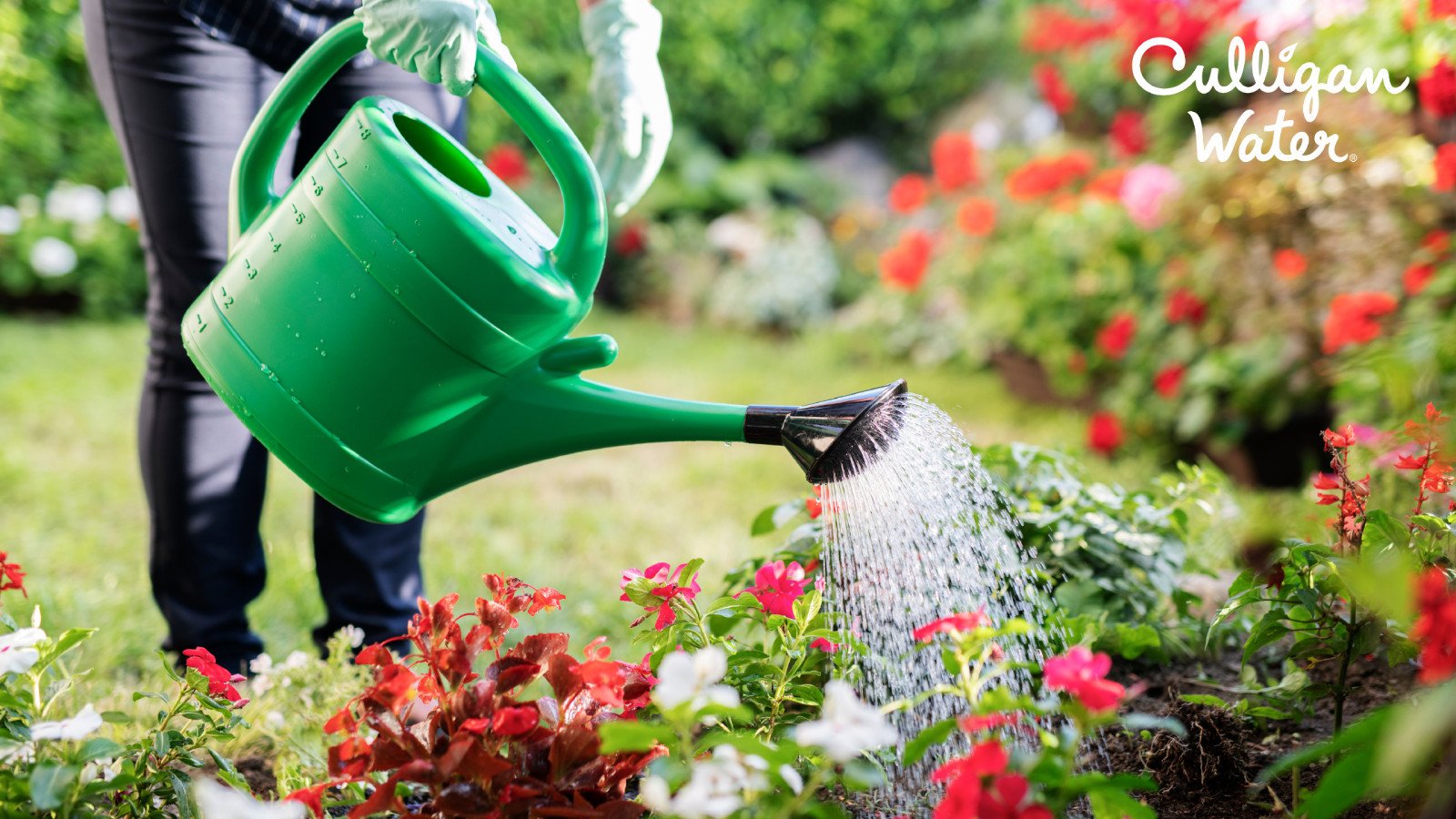
High-quality water is an essential component to plant growth. Make sure yours is up to par with a free water test from your local Culligan water expert.
In this blog, we'll explain how hard water, soft water and reverse osmosis (RO) filtered water can affect your plants. That way you can make the right decision for your garden.
First, here's a quick run-down of each type of water:
- Hard water: "Hard" water is high in dissolved minerals, specifically calcium and magnesium.
- Soft water: "Softened" water is free of hard water minerals that cause buildup and scale.
- Reverse osmosis (RO) filtered water: This process purifies water by separating out contaminants using a reverse osmosis water filter.
Are you using the right water for your plants? Let's find out.
Is Hard Water Bad for Your Plants?
Hard water contains calcium and magnesium carbonate salts. At home, it causes stains, spots and build up on your sinks and plumbing fixtures. But in the right amount, hard water minerals can be good for your plants and help them thrive.
Just be sure to check for any signs of stunted growth. Sometimes that same scaly build-up on your faucet can appear on a plant's leaves, preventing it from absorbing needed sunlight. This can dull your plant's coloring.
More diverse gardens can be hurt by high levels of calcium and magnesium. If you're growing acid-loving plants like azaleas, caladiums and begonias, you'll need to check the pH of your water.
What is pH?
The term pH stands for "potential for hydrogen." It's a measure of the concentration of hydrogen ions in a diluted solution. Acidic solutions contain more hydrogen ions, whereas alkaline solutions contain fewer.
The pH scale ranges from 0 to 14, with 7 considered neutral. Water pH below 7 is acidic and anything higher than 7 is alkaline.
Does pH affect plant growth?
High alkaline levels are common in hard water and may cause problems for plant growth. In this case, reverse osmosis water can offer more controllable watering.
How Does Soft Water Affect Plants?
If your plants get plenty of rainwater, then occasional soft water won't hurt. But watering plants exclusively with soft water isn't recommended.
Most water softeners use sodium chloride, which can cause a gradual build up of sodium in garden soil. Excessive salt build up in soil can prevent your plant from properly absorbing the right amount of water. This will cause plant growth problems, like wilting.
Instead of soft water, use hard water or reverse osmosis for watering plants.
Want soft water in your home but not in your garden? No problem. Your local Culligan water expert can easily create a bypass for outdoor spigots. So you'll only get soft water where you want it.
Below are a couple of the most popular Culligan water softeners.
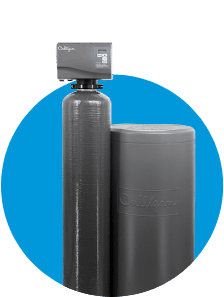
Culligan® Aquasential™ Select Series™ Water Softener:
- All features of a Culligan water softener in an affordable design
- Reduces damaging scale buildup in water-using appliances
- Demand regeneration saves water, salt and electricity
- Operates even in a power outage
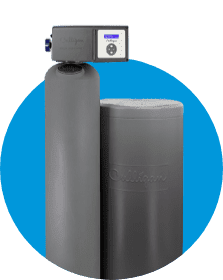
Culligan® Aquasential™ Smart High Efficiency (HE) Water Softener:
- The world's most efficient water softener*
- Reduces operating costs by 46%
- Culligan Connect™ App gives you 24/7 monitoring and control of equipment
- Extends lifespan and efficiency of your home's water using appliances
Growing Plants with Reverse Osmosis Water
A reverse osmosis filter greatly reduces contaminants.** And it's a very popular choice for gardeners with plant diversity.
The biggest benefit is creating clean, consistent water. You can easily control the nutrients and fertilizers you add. Gardeners with bacteria, iron and chlorine problems will appreciate the benefits of reverse osmosis water. It's like having rain water from your faucet.
Plus, the pH of reverse osmosis water can be easily changed. So plants with specific acid or alkaline requirements will benefit from reverse osmosis.
Below are a couple of the most popular Culligan reverse osmosis drinking water systems.
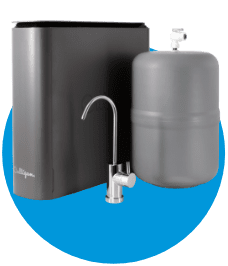
Culligan® Aquasential® Reverse Osmosis Drinking Water System:
- Up to seven stages of filtration with 12 interchangeable filters
- Certified to reduce 60 different contaminants
- Unlimited supply of safer water for just pennies a glass
- Smart option available
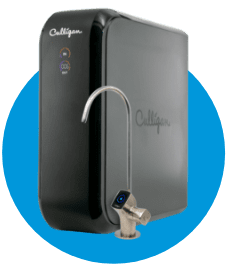
Culligan® Aquasential® Tankless Reverse Osmosis Drinking Water System:
- Elegant, space-saving design
- Four stages of filtration reduces contaminants by 95%
- Unlimited supply of safer water for just pennies a glass
- Smart option available
The Bottom Line:
What is the Best Water for Plants?
Yes, it's okay to use hard water on your plants. But gardens with diverse or delicate plant life may have problems, especially if hard water is their only source of water. Keep an eye out for damage caused by alkaline pH water or high levels of minerals.
It's okay to use soft water, but it doesn't provide any benefit to your garden. And soft water should only be used occasionally on outdoor gardens that receive natural rain. Otherwise, use normal tap water for your indoor plants.
Reverse osmosis is the best water for a serious gardener. It allows precise control of the nutrient flow to your plants. Use reverse osmosis water if you take care of delicate plant life. Otherwise, use hard water for your normal house plants.
Learn More and Get Started
Ready to revive your garden? Call on Culligan to check out your water quality and help find the right water treatment solution for your common household water problems.
Making the switch to reverse osmosis water will give your plants cleaner, consistent water so your plants can grow and thrive. Schedule your free basic water test today!
*HE Softener when configured with proportional up flow brining with Aqua-Sensor®.
**Contaminants may not be in your water.
